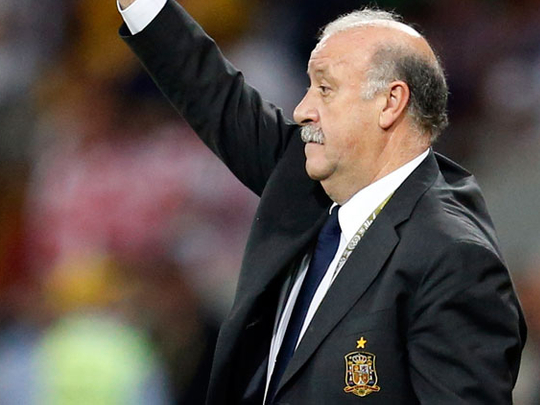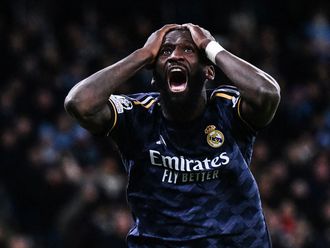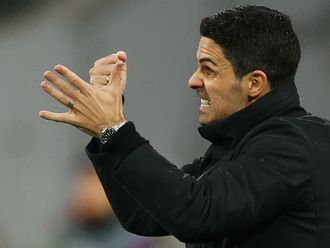
Madrid: He doesn’t have the explosive temperament of Sir Alex Ferguson, nor the obsessive genius of Bill Shankly - not to mention the psychological penetration of Brian Clough or the tactical sophistication of Helenio Herrera.
Nonetheless, Vicente del Bosque was being hailed on Monday as one of the greatest football coaches, after his superlative Spain team won admiration for Sunday’s 4-0 destruction of Italy in the Euro 2012 final.
Sunday’s triumph - which was Spain’s third consecutive major trophy - meant that the taciturn, understated Del Bosque was the first coach to have won the Champions League, the European Championship and the World Cup.
Madrid sports daily AS hailed him as “one of the all-time greats,” and Radio Marca saluted his “tactical know-how” and “ability to motivate players.”
Cadena COPE described him as a “modest genius, able to get a little bit extra from his players,” while Cadena SER praised him for “never wanting to steal the limelight from the players”.
He is more popular now in Spain than after guiding La Roja to their first World Cup two years ago, when a grateful King Juan Carlos gave him the noble title of “The First Marquis of Del Bosque.”
During Sunday’s celebrations in Kiev, Del Bosque characteristically stayed in the background, letting captain Iker Casillas and company enjoy the media attention and the applause of the crowd.
With his trademark humility and serenity, the quiet 61 year-old said: “I understand the joy of the people at this. I am pleased that we have given Spain a little bit of happiness.
“I have not spent much time in the dressing-room because so much euphoria is a bit too much for me.”
When asked whether his experiment of playing without an out-and-out striker should be considered a success, Del Bosque refused to gloat or score points.
“That’s not for me to say. We have just done what we thought was best. We probably would also have won playing a different way,” he said.
True to form, he then retreated into the shadows, leaving his players to enjoy the limelight, the cameras.
On Monday several Spanish media outlets publicly apologised to Del Bosque for having doubted the wisdom of his 4-2-4-0 (or 4-6-0) formation without a real striker, which seems to have been inspired by the experiments of Pep Guardiola at Barcelona.
Quiet elegance and calm efficiency have always been Del Bosque’s watchwords. Recently, the BBC described him as “cool as a cryogenically-frozen cucumber”.
He was a tidy, precise midfielder for Real Madrid from 1970 to 1984, winning 18 caps for Spain and playing for his country at Euro 1980.
He then took his coaching badge and seemed content in the shadows at Real Madrid, managing different youth and reserve teams for the whites.
Until 1999, that is. During one of the club’s periodical coaching crises, Del Bosque was made caretaker manager. Few people expected him to last long in the job but, instead, his quiet efficiency led to one of the most fruitful periods in the club’s history, with two Champions League and two Spanish titles.
Despite this, Del Bosque was controversially sent packing by club president Florentino Perez in 2003, a decision which Perez would soon regret as the whites went a record four years without a single trophy.
Del Bosque had a brief, fruitless spell at Besiktas, before being asked by the Spanish federation to take over La Roja in 2008, when Luis Aragones also left for Turkey.
Del Bosque had the good sense to continue with the “tiki-taka” short passing style that Aragones had introduced - and with most of the players that had triumphed at Euro 2008.
At the time, few Spaniards expected Del Bosque to surpass Aragones’ achievements, but now they are hailing him as one of the greatest coaches in football history










